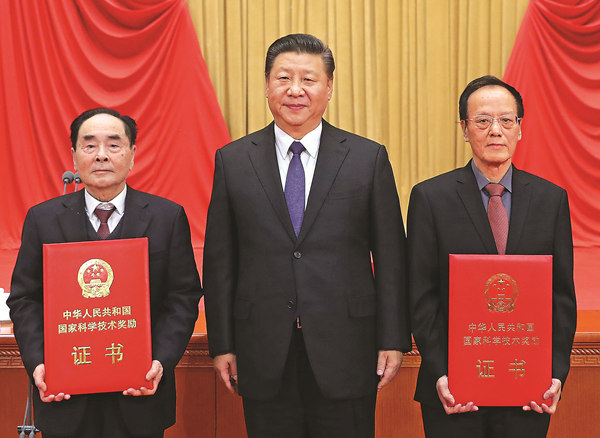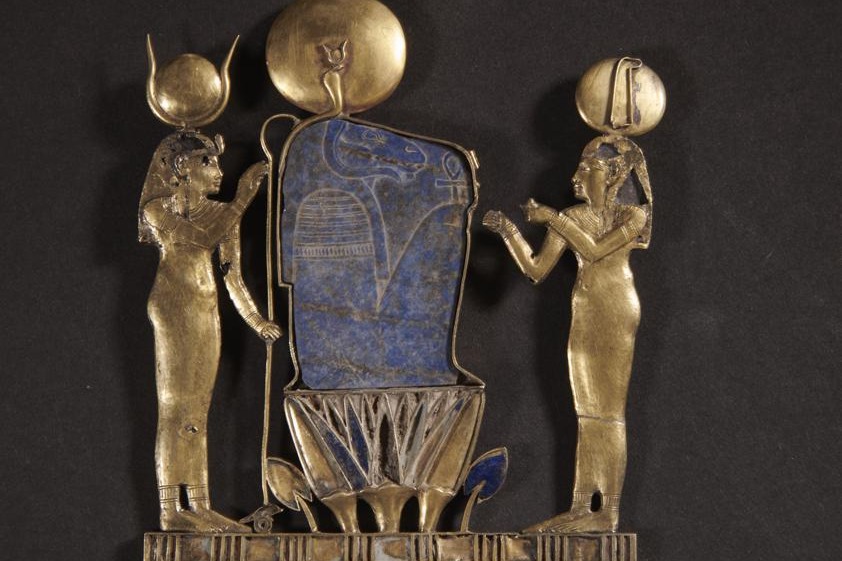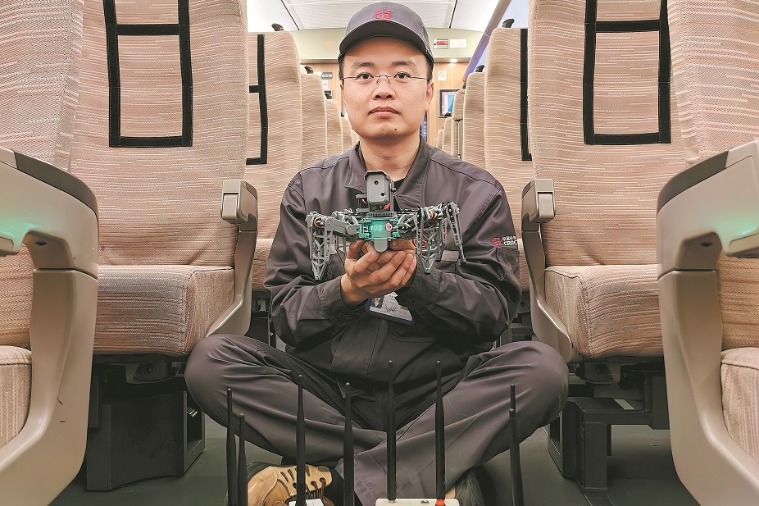Xi presents awards to top scientists


President Xi Jinping presented China's top science award on Monday to explosives expert Wang Zeshan and virologist Hou Yunde for their outstanding contributions to scientific and technological innovation.
Wang, 82, is an academician at the Chinese Academy of Engineering. He is known in the academic field as the "King of Explosives" for his research into compounds that have important civilian and military applications. His inventions have improved the launch range of Chinese missiles and cannons by more than 20 percent.
Hou, 88, also an academician at the CAE, is the founder of China's modern field of virology. He laid the foundation for China's molecular virus research, wrote numerous textbooks, created China's first genetically engineered drugs — highly potent medicines that can be mass-produced — saving millions of lives and billions for the country's economy.
The nation's top science award comes with a prize of 5 million yuan ($769,000). Twenty-nine scientists have received the award since it was established in 2000.
Seven foreign scientists won the state award for international cooperation and they received certificates from the top leaders at the ceremony.
Wang, addressing the ceremony, said that in his report to the Party's 19th National Congress, Xi has made visionary remarks on building an innovative country and a strong power in science and technology.
"General Secretary Xi presented Academician Hou Yunde and me the certificates in person, showing that the Party and country pay great attention to scientific works, and we are deeply moved and motivated," Wang said.
The scientists should carry out their historical mission, make contributions to the country, cultivate world-class scientific talent and produce top-class scientific outcomes, he added.
Premier Li Keqiang said at the ceremony that the country should implement the plans of the Party's 19th National Congress, make its guide Xi Jinping Thought on Socialism with Chinese Characteristics for a New Era and carry out an innovation-driven development strategy.
The government will support innovation by small and medium-sized enterprises and encourage the application of advances in science and technology, Li said.
China considers the development of fundamental sciences such as mathematics to be of great importance, Li said. The government will advance institutional reform to ensure that scientists are able to gain both fame and real benefits from their outstanding works.
The premier also pledged to enhance international cooperation, speed up the formation of international joint research centers and build a global platform for innovation.




































